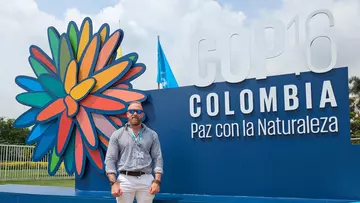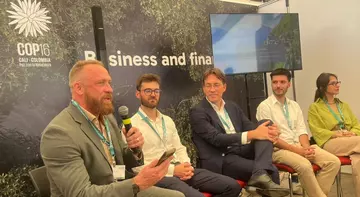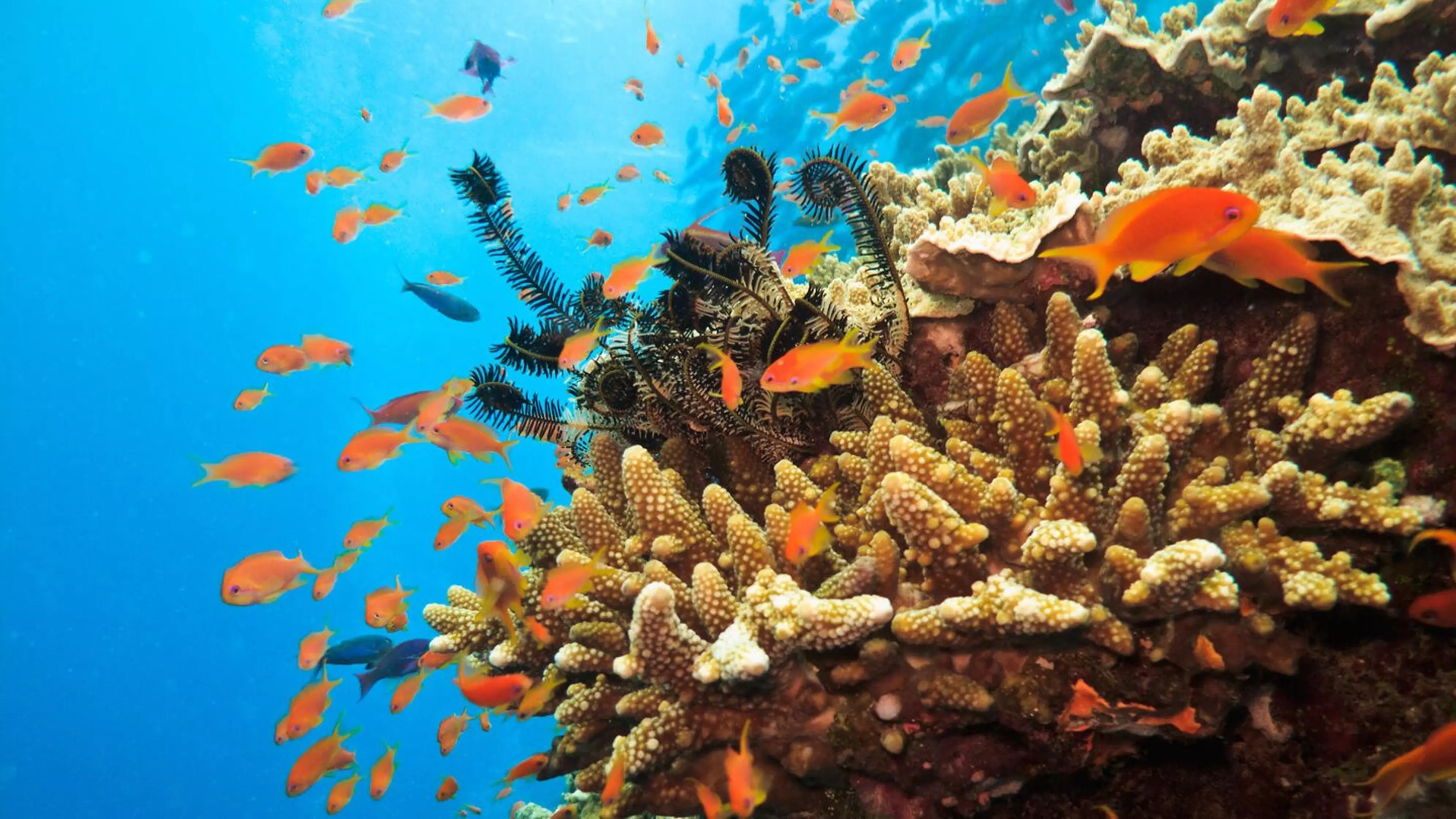
James Pilkington
Senior Sustainable Finance Specialist
At ZSL, we’re committed to halting and reversing global biodiversity loss for the benefit of people and the planet as per the Convention on Biological Diversity’s (CBD) Global Biodiversity Framework’s (GBF) mission. But we aren’t the only ones.

Meeting the many government officials, NGOs and businesses at a Conference of Parties (COP), you realise that an awful lot of us are trying to figure out how to make it happen – and where we fit within this big picture. This is particularly important to understand as a conservation organisation headquartered in the UK but working in many geographies and contexts across the globe.
As we have been deliberating and strategising internally and externally, it is clear our value proposition comes down to four things – and they are the same four things whether it is partnering with governments, local organisations or the private sector. Let’s walk through them, focusing on my area – sustainable finance.

Data and Metrics
Data and metrics are essential because they tell us where to focus our efforts and whether they work. We repeatedly hear that a lack of data and metrics is a barrier to action, but in many ways, we actually have an avalanche of data, and the challenge is creating meaningful insight from it.
ZSL’s data plays a key role in monitoring progress towards GBF Targets through the Living Planet Index. The latest update on this came out recently, and it wasn’t pretty. It found that species populations declined by 73% on average. In Latin America, where CBD COP16 is taking place, the species population declined by a staggering 95%, with one of the most cited threats in the region being climate change. Alongside monitoring, we offer data and guidance to the private sector, such as SPOTT and our partnership with Forest500 linked to company-driven tropical deforestation.
Much of our work on data with the finance sector is about making sense of data they already have and what is available from third parties. For example, you can read about some of our work with Scottish Widows in their new paper on water risk. We are particularly keen on using spatial data and remote sensing to understand what is happening on the ground – new case studies can be found in our upcoming reports on the topics.
Capacity Building
ZSL excels in capacity building, particularly through its Institute of Zoology, which allows us to produce original research and train the next generation of conservation scientists. One of the capacity-building programmes we are showcasing at CBD's COP16 is the EDGE of Extinction programme, which provides the next generation of conservation leaders with the training and resources to work on the most important species globally. The dedication of these people really is inspiring.
We also offer off-the-shelf and bespoke training introducing biodiversity to the private sector. We’ve found this a great way of starting the internal conversation about what action to take on biodiversity. You can get a sneak preview on our SPOTT website.
Within the conservation sector, there’s also a real hunger for more knowledge about finance and we’ve done a lot of capacity building on this topic as well. One of my favourites has been guest lecturing at the Centre for Doctoral Training in Sustainable Management of UK Marine Resources.
Access to Finance
Knowing where to intervene from the data and having the capacity to act is not enough – we also need the resources to implement change, and that’s why finance is such a hot topic at COP16. At ZSL, our approach is to bring finance to the field and vice versa. We’re known for our Rhino Bond, creating an innovative source of finance to sustainably protect and recover black rhino populations and a blueprint for other rhino species and for the founding of the current Earthshot Prize finalist Coast4C, but we’re not resting on our laurels.
We recently partnered with First Rand Bank in South Africa to develop a Lion Bond. We’ve also built a portfolio of blue carbon projects with the support of our finance sector partners, from mangrove restoration in the Philippines supported by Aviva Investors to a seagrass protection project in India supported by Standard Chartered Bank. We’ve also got a long portfolio of nature-based solutions projects from Thailand to London.
Video on our work on human-wildlife coexistence in Thailand
Policy Engagement
Of course, this Conference of Parties focuses on the policies needed to achieve the GBF. From our work in sustainable finance, it is increasingly clear that that the regulatory environment is the most important factor both in determining whether a project is a viable investment - and that compliance is the biggest driver of private sector action on nature.
In order to affect this change at the policy level, we’ve partnered with the World Economic Forum to support the development of a National Blue Carbon Action Plan in the Philippines. We are heavily engaged in international plastics policy and provide technical advice to the Principles for Responsible Investment’s SPRING initiative to motivate companies to engage national governments in better biodiversity regulation.
ZSL has recently revamped its policy team under the leadership of Georgina Chandler, and we’re seeing increasing engagement and influence in this area, both in the UK and in the countries where we have a strong local presence, like Nepal and Cameroon. We’ve got real opportunities to improve the policy environment to drive more investment in nature, and we’re looking for partners willing to support us in closing the biodiversity finance gap.
I hope that gives a better picture of how ZSL can contribute and the role we are playing. It’s an exciting role, and I’m lucky enough to be surrounded by some of the smartest and most dedicated people in our field, not just at COP16 but throughout our work.
We’re busy making an impact, but we’re always looking for partners and supporters who see the value of what we do and want to collaborate, so don’t hesitate to get in touch, either at COP16 or in the aftermath.
